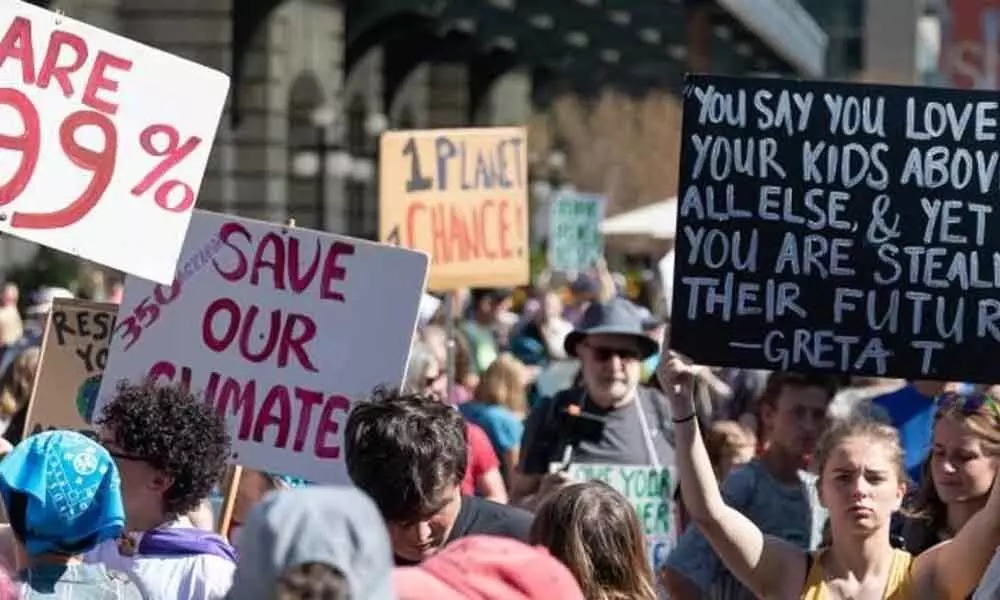Myths about American climate policy

The Trump administration is planning to remove an exception in the Clean Air Act that allows California to set stricter emission standards for vehicles than the rest of the country.
The Trump administration is planning to remove an exception in the Clean Air Act that allows California to set stricter emission standards for vehicles than the rest of the country.
The exception has always been a sore point for climate denialists and anti-environmental libertarians because it is a particularly efficient environmental regulation.
Because of its population and economic performance, California is a key market for automobile manufacturers. It turns out to be more efficient for manufacturers to bring their whole product range in line with California standards, than to manufacture separate products for California and the rest of the US.
So, the cost of administering the policy is largely limited to one State — the effects are felt through the country and beyond. This latest assault on environmental and climate regulations should lay to rest a couple of myths about American policy making.
The first myth is the sanctity of federalism. States' rights are invoked in the face of any federal attempt to regulate pollution.
Trump's first choice for Administrator of the Environment Protection Agency — Scott Pruitt — made a career out of asserting States' rights against the federal government's regulation of climate pollutants, methane emissions, haze, fracking, and corporate disclosures on climate change.
As the federal regulator, Pruitt made a complete about-face to insist that the federal government has the right to force California to downgrade its standards.
He resigned amidst a scandal last year, and was replaced with Andrew Wheeler, a coal lobbyist referred to as Pruitt's "ideological twin".
Federalism is important to any democratic polity. It is most useful when used as a basis for co-operative fact-based policy making between different levels of government.
The exception for California in the Clean Air Act was precisely that kind of policy making — a federal regulation enacted under a Republican President (Richard Nixon), which allowed California to continue a track record of enlightened environmental regulation under a Republican Governor (Ronald Reagan).
This latest development is a purely tactical move, un-moored from any broader principle. It should conclusively undermine any argument that ambitious climate action in America is difficult because of its complex political system.
It seems all too easy to ram through policies based on climate denialism. It is time for federalism to follow the dictates of climate ambition, not the other way around.
The second myth is that federal inaction can be compensated for by local and private action. This has been a cornerstone of American climate advocacy since Trump. As a call to action, it is an admirable sentiment.
The problem is that it has spilt over into a misguided optimism that the America's commitments can be met despite the American president.
That is patently untrue. It relies on some very generous accounting of the US' emissions trajectory, such as setting the baseline year at 2005 rather than 1990.
This allowed the 2008 recession and its aftermath to be passed off as a de coupling between economic growth and emissions. More recent data shows that it was anything but that.
US consumption levels in the past five years are continuing to climb across sectors, and emissions from the transportation sector have risen steadily since at least 2014.
This narrative also tends to measure US emissions against its international pledges, including under Paris Agreement. That completely ignores that those pledges are well recognised as inadequate relative to the US' historical responsibility and that even the Obama administration considered them an absolute minimum rather than an aspiration.
It also ignores that the US is obliged to provide finance and technology to the developing world to offset the cost of energy transitions and adaptation.
Rather, this sub-national performance is used as part of a narrative to get developing countries such as India to do more. While all countries need to do more for the climate, developing countries (including India) have generally set far more ambitious targets than the US.
This development should end the illusion that sub-national action will suffice. Apart from its inadequacy, it has always been subject to the caprice of federally mandated climate denialism.
The US has been missing from serious climate policy since 2016. To make a comeback, its political priorities must change, right from the top.














